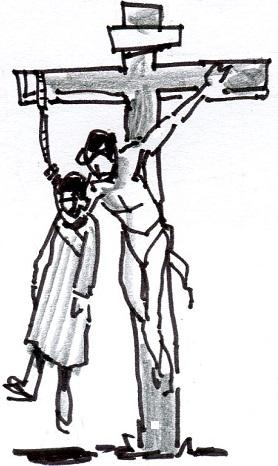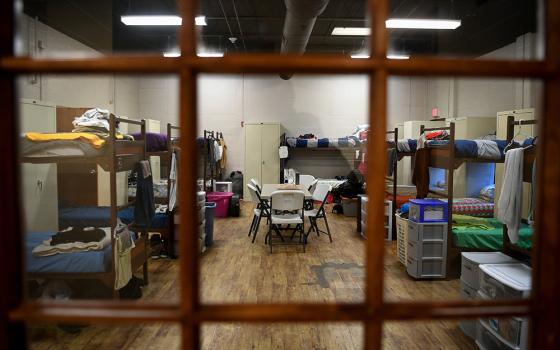
“And it was night” (John 13:30).
Tuesday of Holy Week
Betrayal is always an inside job. Someone with intimate connections or knowledge of another’s thoughts and intentions shares that insight with enemies, enabling them to gain access or the opportunity to take down their intended target. Betrayal requires deception, an outer face that shows loyalty while an inner face plots desertion.
In John’s Gospel, Jesus reads Judas, offers a sign to him that he knows what is up and still affirms their friendship by passing a morsel of bread dipped in the common dish. The pathos of the moment deepens Judas’ resolve and invokes a first flush of shame that will blossom in his conscience after the fact and give logic to his suicide. Whatever his intentions, he has made possible the death of the Master at Passover and shattered the inner circle of trust among the disciples, who scatter in mortal fear at the hour of greatest need.
Decapitation should have killed the whole movement, but it does not. The most personal blow imaginable, delivered from within, scatters the group, beginning with Peter, who denies Jesus, and sends the others fleeing from the garden, save one. The Beloved Disciple, with the faithful women, will accompany Jesus to the end.
Even this blow to unity does not ruin the story that, in hindsight, will be later seen to have needed total tragedy to demonstrate the sheer depth of God’s love for a sinful world. Rejected, betrayed, denied and abandoned, a murdered God will rise from the dead to reject human rejection and restore us to grace right when we have shown our worst.
Across the table, a friend extends a hand holding a piece of bread. Take it, eat, and do not avert your eyes from the look of love that never falters, never ends.






